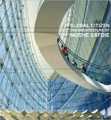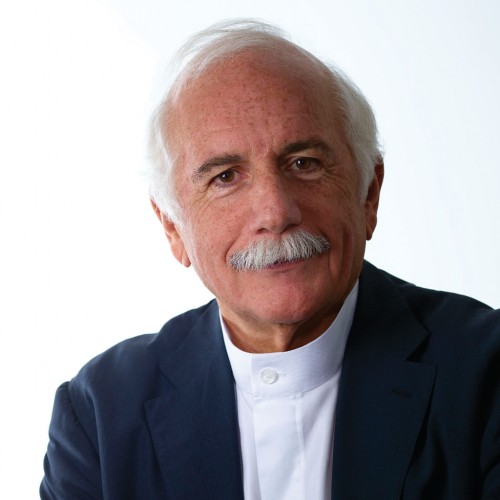Born in Haifa, Israel, in 1938, Safdie moved to Canada with his family at a young age. He graduated from McGill University in 1961 with a degree in architecture. After apprenticing with Louis I. Kahn in Philadelphia, Safdie returned to Montreal to oversee the master plan for the 1967 World Exhibition. In 1964 he established his own firm to realize Habitat ‘67, an adaptation of his thesis at McGill, which was the central feature of the World’s Fair and a groundbreaking design. The rest, as they say, is history. Moshe is an architect, urban planner, educator, theorist, and author. Embracing a comprehensive and humane design philosophy, he is committed to architecture that supports and enhances a project’s program; that is informed by the geographic, social, and cultural elements that define a place; and that responds to human needs and aspirations. Safdie has completed a wide range of projects, such as cultural, educational, and civic institutions; neighborhoods and public parks; mixed-use urban centers and airports; and master plans for existing communities and entirely new cities around the world. Major projects by Safdie Architects currently under construction or recently completed include Mamilla Alrov Center, a dynamic urban center near the Old City in Jerusalem; Marina Bay Sands, a mixed-use integrated resort in Singapore; Khalsa Heritage Memorial Complex, the national museum of the Sikh people in the Punjab, India; the United States Institute of Peace Headquarters on the Mall in Washington, D.C.; the National Campus for the Archeology of Israel in Jerusalem; the West Edge project, a mixed-use facility in Kansas City, Missouri; the Kauffman Center for the Performing Arts in Kansas City, Missouri; and the Crystal Bridges Museum of American Art in Bentonville, Arkansas. In 1970, Safdie established a Jerusalem branch office, commencing an intense involvement with the rebuilding of Jerusalem. He was responsible for major segments of the restoration of the Old City and the reconstruction of the new center, linking the Old and New Cities. Over the years, his involvement expanded and included the new city of Modi’in, the new Yad Vashem Holocaust Museum, and the Rabin Memorial Center. During this period, Safdie also became involved in the developing world, working in Senegal, Iran, Singapore, and in the northern Canadian arctic. In 1978, after teaching at Yale, McGill, and Ben Gurion Universities, Safdie relocated his residence and principal office to Boston. He served as Director of the Urban Design Program at Harvard University Graduate School of Design from 1978 to 1984, and Ian Woodner Professor of Architecture and Urban Design from 1984 to 1989. In the following decade, he was responsible for the design of six of Canada’s principal public institutions, including the Quebec Museum of Civilization, the National Gallery of Canada, and Vancouver Library Square. Safdie has worked with a wide range of clients, including municipal entities and government agencies, colleges and universities, private developers, and non-profit organizations and civic institutions. Many of his firm’s buildings have become beloved regional and national landmarks, including Exploration Place Science Center, Wichita, Kansas; Salt Lake City Public Library, Salt Lake City, Utah; Peabody Essex Museum, Salem, Massachusetts; Springfield Federal Courthouse, Springfield, Massachusetts; Skirball Cultural Center, Los Angeles, California; Lester B. Pearson International Airport, Toronto, Canada; the National Gallery of Canada; and Yad Vashem Holocaust Museum, Jerusalem, Israel. Safdie has been the recipient of numerous awards, honorary degrees, and civil honors, including the Companion Order of Canada and the Gold Medal of the Royal Architectural Institute of Canada.
MORE ON: wikipedia | facebook| homepage


